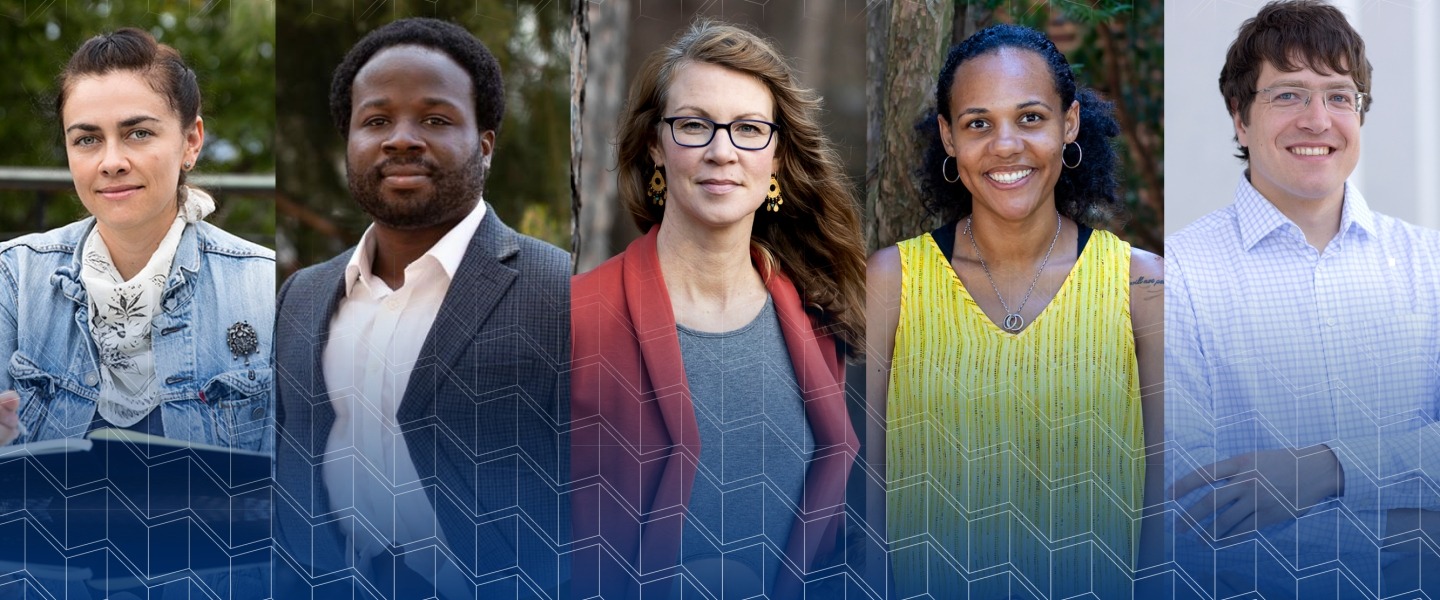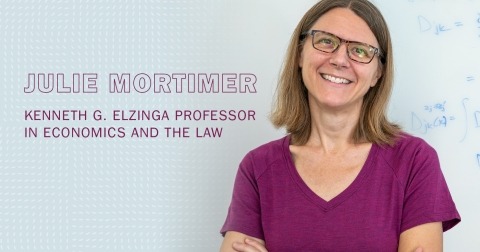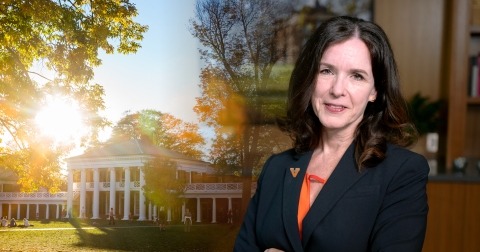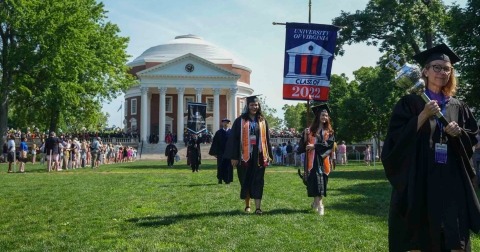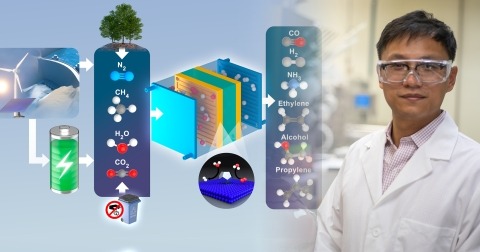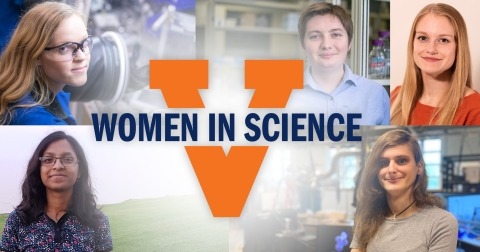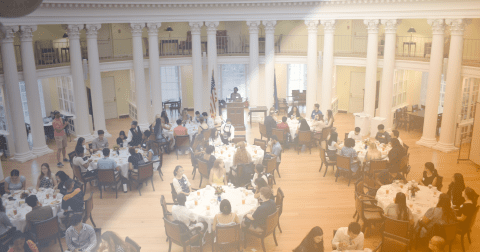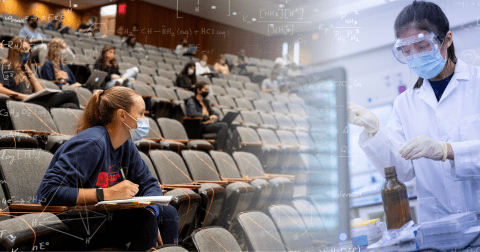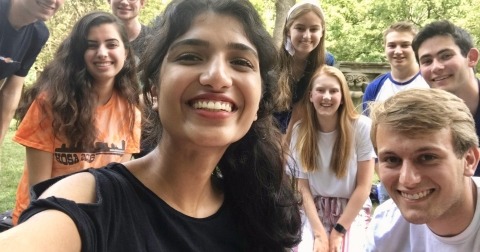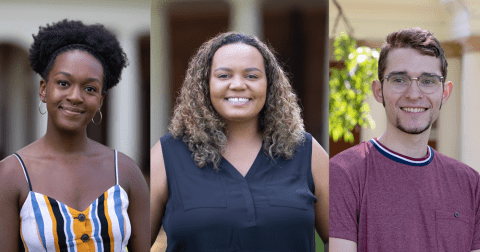For faculty in the early stages of their careers, winning the National Science Foundation’s Faculty Early Career Development (CAREER) award is a promising sign their professional trajectory is destined to be anything but ordinary.
Across Grounds, 12 members of the University faculty have won the highly competitive CAREER award for 2021, a number that has more than doubled in recent years. This year, five members of the College of Arts & Sciences faculty representing chemistry, biology, physics, psychology and environmental sciences are among the winners of the twelve who have won the highly competitive award, which recognizes their potential as innovators in both research and education and will bring nearly $5 million in federal funding to their groundbreaking research over the next five years.
“The prestigious CAREER awards identify researchers with the potential to make profound impacts through their excellence in both research and education throughout their career,” said Melur “Ram” Ramasubramanian, UVA vice president for research. “We look forward to seeing these awardees at UVA continue on the path to becoming future leaders and role models in research and education.”
“Identifying, recruiting and retaining rising faculty stars is a critical priority in the Honor the Future capital campaign,” said Ian Baucom, Buckner W. Clay Dean of the College and Graduate School of Arts & Sciences. “Endowing funds for professorships and faculty support ensures the College remains among the elite research and teaching institutions, with professors receiving national recognition.”
Meet this year’s 2021 CAREER award winners from UVA’s rising stars in science.
Robert Gilliard (Department of Chemistry)
Holographic displays, color-changing frames and pliable screens are just a few of the innovations the next generation of smartphones may offer. And while engineers and coders will be responsible for making much of that technology possible, there’s a good chance we’ll also need to thank Assistant Professor of Chemistry Robert Gilliard.
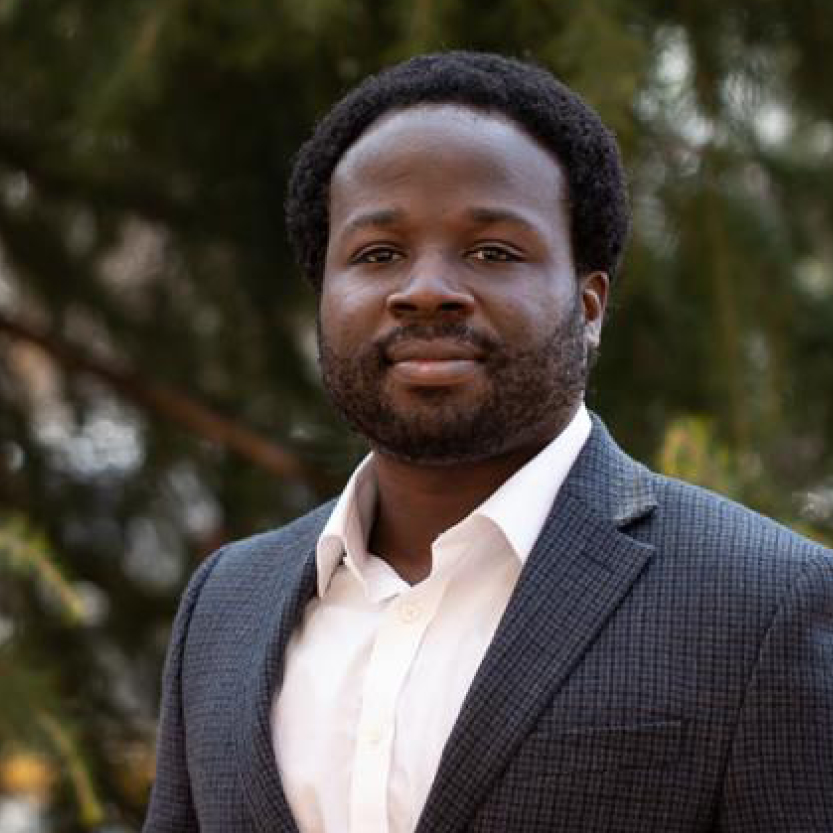
Robert Gilliard (photo by Molly Jordan Angevine)
Gilliard explores strategies for incorporating boron into chemical compounds to help him understand how to harness the element’s unique capacity to carry and transfer electric charge and to produce the colors displayed by our cellphones and electronic devices.
“In collaboration with the Chemical Engineering Department here at UVA, we’ve already started to explore the applications of some of these boron-based materials, and we’re seeing that the utility is probably going to be pretty important going forward,” Gilliard said.
The CAREER award will play a big part in advancing research that will make components in those devices more stable, less expensive to produce and less harmful to the environment over time.
“This is the technology that has resulted in your lights in your home lasting much longer than they did even five years ago,” Gilliard said.
“We have a unique potential to be one of the leaders in this area of boron chemistry,” he added. “There are not many people in the United States exploring these areas of chemistry, and increasing our ability to compete globally in this area of science is extremely important.”
Gilliard will also use funding from the CAREER award to fund research positions for undergraduates from underrepresented communities with the aim of expanding the opportunities for students who wouldn’t otherwise be to take part in these high-quality educational and technical training opportunities, an important step in increasing the diversity of the STEM workforce.
Jennifer Güler (Department of Biology)
As we struggle to come to terms with the fact that 800,000 lives have been lost to COVID-19 in the United States alone, it can be easy to forget that nearly as many people die from malaria around the world every single year.
Malaria is caused by a single-celled, mosquito-borne parasite, but like a virus, it can adapt to survive a variety of challenges that could wipe it out completely.
Assistant Professor Jennifer Güler studies how the malaria parasite responds to changes in its environment that are hostile to its survival.
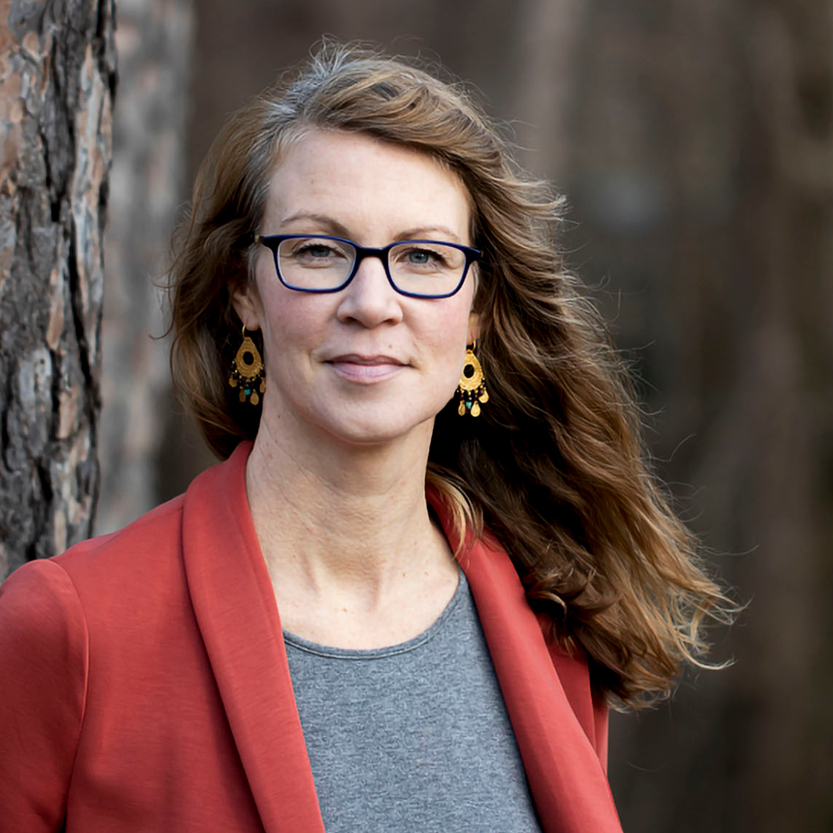 Jennifer Güler (photo by Molly Jordan Angevine)
Jennifer Güler (photo by Molly Jordan Angevine)
Over the course of its life cycle, the malaria parasite must be able to adapt to the conditions that allow it to survive in the body of a mosquito, in the liver of an infected host or in a host’s bloodstream before it infects another mosquito. Evolution has also equipped it with the capacity to develop a resistance to the drugs that researchers develop to defeat it. Güler uses a powerful combination of laboratory studies and computational modeling to understand the complexities of the cellular behaviors that make the malaria parasite so resilient.
“The CAREER award will help us look, specifically, at how the parasites respond to stress, so if they’re in one of these new environments and it’s stressful for them — maybe there’s a limiting nutrient or a drug present and it’s causing stress — what sort of programs are going on inside that cell that allow it to survive,” Güler said. “Ultimately, what we learn could help us find a better way to treat this disease.”
Seanna Leath (Department of Psychology)
Despite the fact that the workforce in the fields of science, technology, engineering and math (STEM) has shown considerable growth in recent years, Black workers, and especially Black women, remain underrepresented. And according to a study of trends in STEM degrees by the Pew Research Center, the gap is unlikely to narrow any time soon.
For Seanna Leath, an assistant professor of psychology, universities have an important part to play in solving the problem.
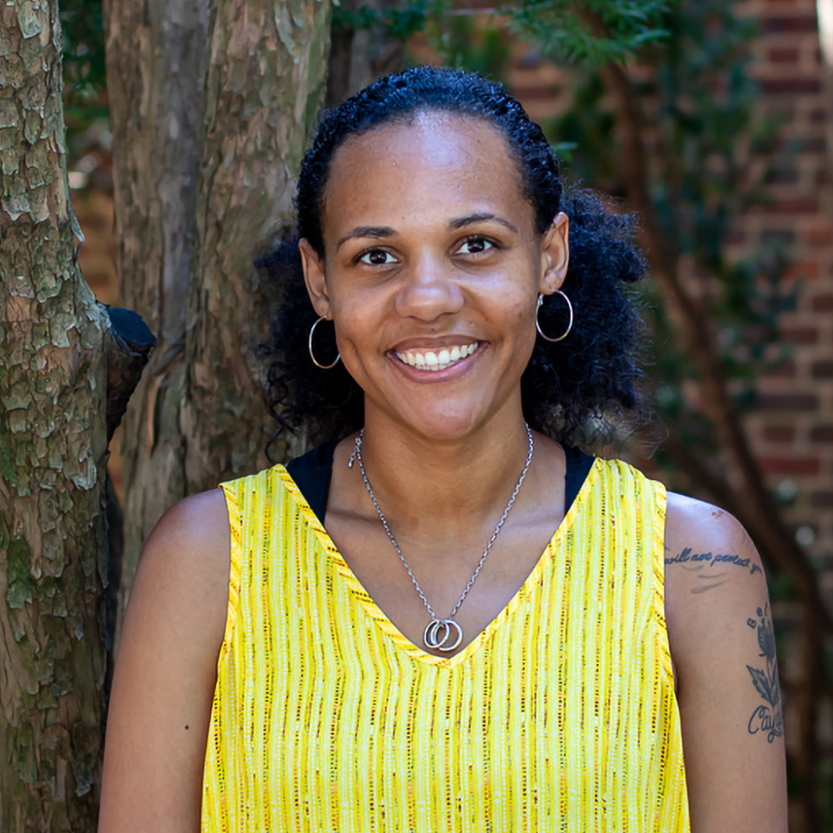
Seanna Leath (contributed photo)
Leath’s CAREER award will allow her to explore how improving the academic, social, and psychological wellbeing of Black college women will help attract them to the study of STEM disciplines and allow them to thrive as students. Funding from the award will allow Leath to develop an extensive survey of Black undergraduate women over a four-year period. Using the data she collects, she hopes to identify the most important factors affecting the motivation and retention of Black women in STEM degrees and develop recommendations for universities to help eliminate obstacles to their success.
Sally Pusede (Department of Environmental Sciences)
You might think that air pollution is an equal-opportunity threat. However, there is a solid body of evidence suggesting that not everyone who lives in urban areas experiences the same level of exposure, which means that some communities are faced with a lower quality of life and lower life expectancies.
Using a variety of airborne and ground-based data-collection methods, Assistant Professor Sally Pusede, an atmospheric chemist in the College and Graduate School of Arts & Sciences’ Department of Environmental Sciences, is interested in advancing our understanding of how variations in exposure to airborne pollutants occur in urban areas and why.

Sally Pusede (photo by Dan Addison, University Communications)
“Air pollution is an extremely serious human health problem affecting major cities worldwide. Nitrogen dioxide is a common constituent of air pollution, typically found in high concentrations in dense areas of fuel combustion for vehicle use, and therefore, it affects communities inequitably. And, historically, measuring atmospheric concentrations of nitrogen dioxide has been challenging, as we lack effective monitoring approaches,” explained Howard Epstein, chair of the Department of Environmental Sciences at UVA. “Sally is making important strides toward understanding how to assess the pollution caused by nitrogen dioxide and how to control it.”
With the help of a five-year CAREER award, Pusede will conduct field work in Dakar, Senegal, which will lead to the training of U.S. and Senegalese students in an international collaboration of physical and social scientists that will involve collecting and integrating scientific data and demographic information from a wide range of sources to shed light on inequalities in pollutant exposure and their consequences.
Pusede’s project will also include the development of educational and public-outreach activities based on her research, including the development of a middle-school curriculum aimed at encouraging students’ interest in the STEM fields and demonstrating how those fields can help advance the cause of environmental justice.
Peter Schauss (Department of Physics)
According to the U.S. Energy Information Administration, approximately 5% of the energy that is generated by power plants in the country is lost to resistance in the power lines used to transmit energy to homes and businesses.
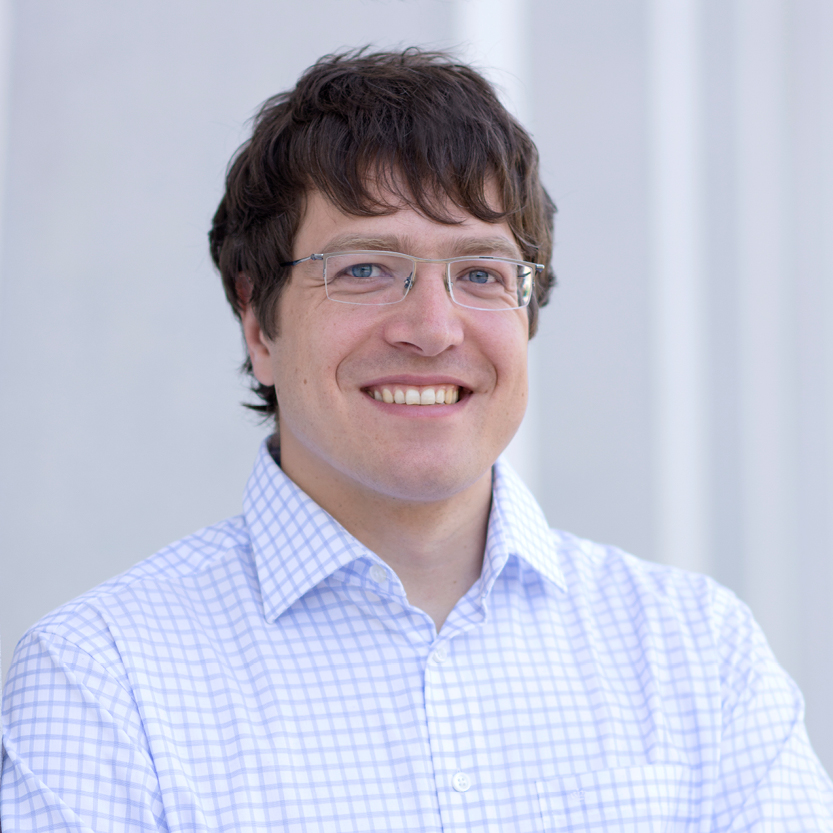
Peter Schauss (contributed photo)
The complexity of the problem at the atomic level makes it difficult for researchers to understand exactly what properties of the electrons involved might lead to the ability to conduct current without resistance.
Direct imaging of electrons is almost impossible, but quantum simulation can shed light on the microscopic properties of these complex quantum systems. CAREER winner Peter Schauss, an assistant professor of physics who specializes in experimental atomic, molecular and optical physics, will use funding from the award to develop quantum simulations using atoms cooled to a few billionths of a degree and trapped in an artificial crystal of light. Using a quantum gas microscope with high-resolution imaging capabilities that will allow him to capture images of individual atoms, he’ll search for answers that could lead to the next generation of superconductors.

